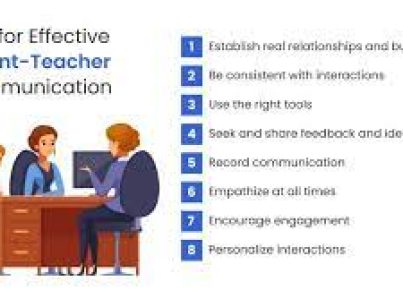Building positive relationships with parents is essential for the success of a school. Strong parent-school partnerships have been shown to improve student achievement, attendance, and behavior. But how can schools create these kinds of relationships, especially with those tough-to-reach parents? Here are five effective strategies that can help schools foster healthy relationships with parents:
1. Establish clear communication channels
One of the main reasons for strained parent-school relationships is poor communication. It’s vital to establish multiple channels that are easy to navigate and make sure all stakeholders are kept informed. These channels could include email updates, newsletters, social media platforms, and school websites. By providing frequent updates about school events, activities, and academic progress, schools can keep parents well-informed and engaged in their child’s education.
2. Host events that promote family involvement
Family-centered events like parent-teacher conferences, family nights, or workshops provide an opportunity for parents to actively participate in their child’s school life. These types of events not only show parents that the school values their input but also helps build trust between families and the school staff. Additionally, they serve as a platform for exchanging ideas and addressing concerns – paving the way for fruitful collaborations.
3. Provide support for parents
Schools should offer resources and support services specifically tailored for parents from diverse cultural backgrounds or those facing unique challenges. This could be done by providing interpreters during meetings or events involving non-English speaking families or offering special workshops geared towards specific issues that a particular group may be experiencing. By addressing these needs proactively, schools demonstrate genuine care for the well-being of all parents and children within their community.
4. Invest in building strong relationships with each family
Relationships aren’t built overnight – it takes time and effort. Schools should aim to build lasting connections with every family through regular interactions such as phone calls, home visits, and individual meetings. Establishing personal relationships not only helps the school better understand each child’s needs, but also makes it easier to engage even the toughest-to-reach parents.
5. Encourage parents to become active partners in their child’s learning
Schools should find ways to involve parents in the educational process by encouraging them to volunteer for activities in the classroom, contribute their skills during school events, or even serve on committees that shape school policies and decisions. This helps parents feel valued as partners and fosters a sense of shared ownership over their child’s education, leading to stronger parent-school relationships.
In conclusion, fostering positive relationships with parents – even the tough ones – is crucial for building a supportive educational environment. By applying these five strategies, schools can create an atmosphere in which all families feel welcomed, valued, and empowered to contribute in meaningful ways that ultimately benefit the entire school community.





